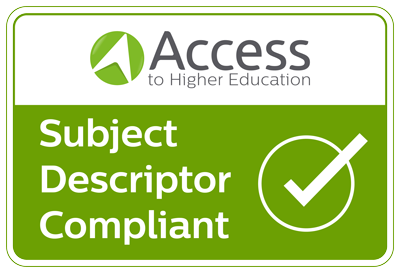About the course
 Access to Medicine is an intensive science‐based one year full time course tailored to the requirements of a medical degree, designed to provide an alternative route for non-traditional students into medical training.
Access to Medicine is an intensive science‐based one year full time course tailored to the requirements of a medical degree, designed to provide an alternative route for non-traditional students into medical training.
It is a course for mature students who, having achieved in other areas, now wish to retrain as doctors. These include:
- those with experience in other health-related professions
- those whose initial career choice has proved unsatisfying and who wish to change their field of employment to the health care sector
- those who have previously studied in higher education, but whose studies did not constitute a suitable preparation for medical training
What is an Access to Higher Education course?
An Access to Higher Education course is a 1 year pre-university course that prepares adults for study at university. This course is ideal if you have been out of education for a while, planning a career change or upskill in your current job. A typical Access course is 2-3 days a week, 9.30am-3pm and are taken by students of all ages and backgrounds.
Applications open soon
Duration
3 full days. (This equates to 2.5 days direct delivery, in addition to 0.5 enrichment and/or workshop).
Classes start at 9.30am and end at 4.30pm*
*The department recognises that a large number of students have care or parental responsibilities and makes allowances to ensure these demands can continue to be met by learners.
Entry requirements
GCSE English, Maths and Science at Level 5 or above
We will consider exceptions to this requirement, subject to any other qualifications or evidence of the required competencies.
Who is it suitable for?
This course is suitable for anyone who wishes to go to university and is taken by adults aged 19+. There is no upper age limit.
How much does it cost?
The cost of this course is £3384
Funding Checker
This funding checker will tell you if this course may be free or part-funded. Part-funded means you only pay for part of the course.
Contact Us or call our Admissions Team 01279 868100 to get the most up-to-date info on fees and the financial support that may be available to you. Please note: all information is accurate at the time of publishing but may be subject to change
Instalment Plan ✓
This course qualifies for an Instalment Plan, allowing you to pay in smaller, more manageable amounts. Contact our Admissions Team on 01279 868100 for more details.
Advanced Learner Loan ✓
The course can also be fully-funded through an Advanced Learner Loan.
Click here to find out more about Advanced Learner Loans
Awarding body
CAVA
Why study?
You will become proficient in a number of standard laboratory techniques including microscopy, dissections, spectroscopy, gel electrophoresis, PCR, aseptic technique, basic microbiology, chemical and biochemical identification tests, organic syntheses and approximations of physical standards.
This course will prepare you for entry to a university course, even if you don't currently have the qualifications you need. Once you've achieved your Access to HE Diploma there are a wide range of higher education options open to you at the University of your choice. The career you always wanted is nearer than you think.
Where will this course take me?
Learners on the Access to Medicine programme would have a clear progression pathway to multiple local universities. Those in the area that already accept this qualification include ARU, Kent Medway, Leicester, St George's, Southampton, Leeds and Keele. (Students are expected to undertake a self-funded aptitude test for med school entry, this is either the BMAT or UCAT – details available on-line).
(Note: the above Medical schools have accepted our students previously, name Harlow College specifically or do not specify specific colleges.)
Alternative degrees possible with the Access to Medicine Diploma include Biology, Biomedical Science, Bioengineering, Dentistry and Dietetics.
Possible careers
- Anaesthetist
- Cardiologist
- General practice doctor
- Neurologist
- Radiologist
- Psychiatrist
Core modules
You will study a range of different modules across the programme, some focusing on your academic skills and some more subject specific, here are some examples of the types of modules you will study:
- HE Study and Presentation Skills
- Professional Behaviours
- Numerical Data and Statistical Analysis
- Patterns of Human Disease
- Disease Fundamentals
- Introduction to Biology
- Cell Biology and Genetics
- Human Physiology
- Introduction to Chemistry
- Organic and Inorganic Chemistry
- Physical Chemistry
- Medical Physics – waves, vision and hearing
- Medical Physics – energy, pressure and electricity
- Medical Physics – radioactivity and X-rays
- Research Project
Please note these module examples are subject to change
How will I be assessed?
- Closed book exams
- Seminar presentations
- Assignments and exams for the graded modules
Will I have to provide anything?
Lab Coat and Goggles. This equipment can be purchased through the College.
I'm interested. What should I do now?
Call 01279 868100 and talk to an Admissions Adviser
Ask Us a question about this course



